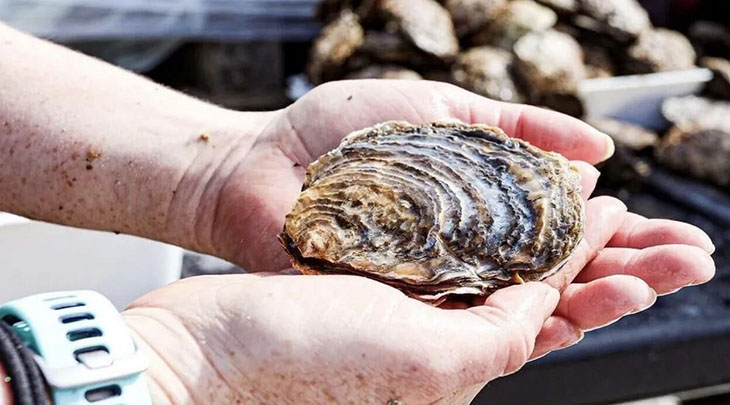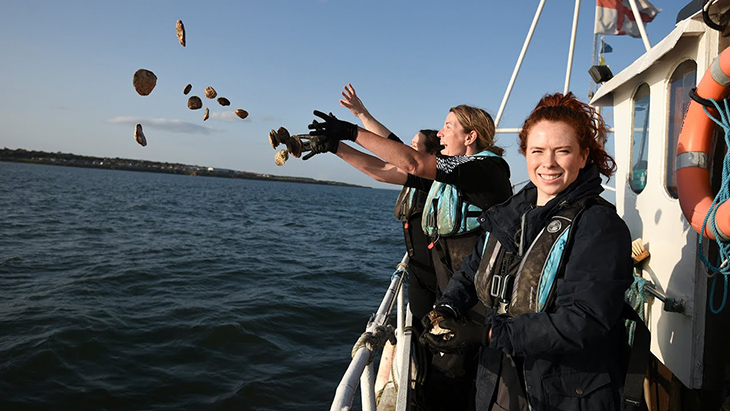
Once a haven for oysters, Britain holds the potential to reclaim its status as an oyster paradise, thanks to the ongoing efforts of one particular conservation group. However, the oysters aren’t for consumption.
The Wild Oysters Project in the UK has recently introduced 10,000 oysters into the untamed waters off the northeast coast of England near Newcastle-upon-Tyne. The hope is to have a resurgence of these mollusks in their natural habitat.
Oysters play a crucial role in maintaining marine ecosystem health by filtering substantial amounts of water daily in their quest for basic sustenance. A single oyster can filter 50 gallons (over 100 liters) of water per day, effectively purifying it from nitrogen and various pollutants.
Moreover, the reefs formed by these mollusks act as natural essential breakwaters, mitigating the impact of storms on the shoreline.
Given the decline in oyster populations, the Wild Oysters Project took innovative steps, constructing an artificial refusing 827 tons of scallop shells and stones to replicate the materials found in natural oyster reefs. This unique approach preceded the release of the bivalves into their new habitat.
According to a press release from the Zoological Society of London, Matt Uttley, restoration project manager at the Blue Marine Foundation said, “Native oysters are ecosystem engineers, which means they change and improve the environment around them. Native oysters create a structurally complex three-dimensional habitat, which supports an abundance of other marine life and is intrinsically linked with ecosystem biodiversity.”
The oysters inhabiting the new reef are not meant for human consumption; instead, their purpose is to serve as ecosystem engineers, contributing to the well-being of their surroundings.

Wild Oysters Project Manager, Celine Gamble, said, “Today marks an important milestone in our journey to restore native oyster reefs to British coastlines.”
“We’re optimistic that the 10,000 oysters will thrive, reproduce, and grow on the new reef, which is the size of a football pitch, and we look forward to carefully monitoring their progress over the coming months,” she added.
The Wild Oysters Project has gone above and beyond by releasing over 1 billion oyster larvae to date. Additionally, they actively maintain restoration reef sites in six marinas across England, solidifying their commitment to revitalizing oyster populations and preserving marine ecosystems.
See more about this incredible project in the video below:
What are your thoughts? Please comment below and share this news!
True Activist / Report a typo


